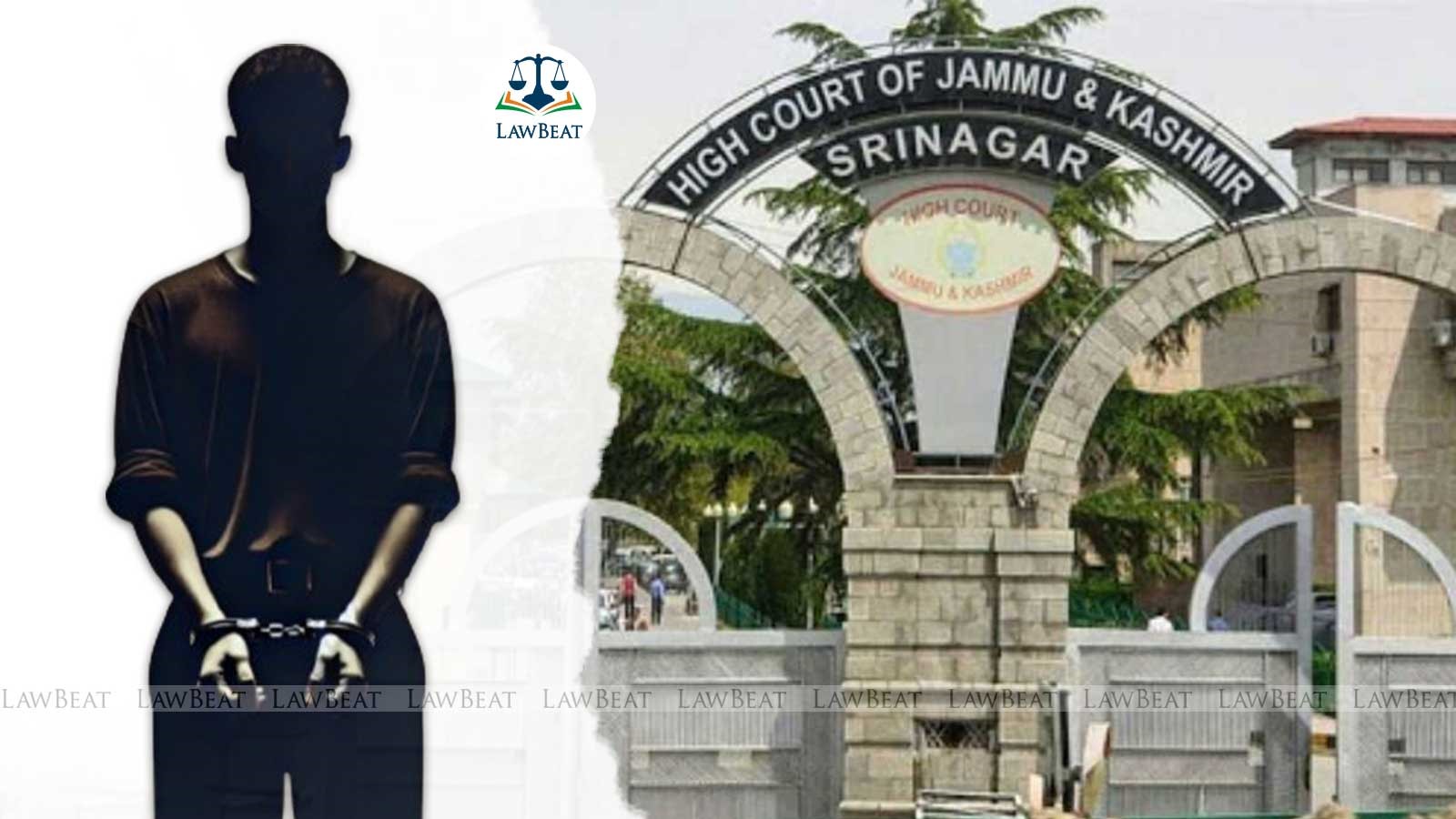J&K and Ladakh HC Warns Against Using Preventive Detention Law to Bypass Ordinary Criminal Law in Routine Offences

The court criticised the detaining authority's casual approach in issuing the detention order without providing the dossier to the detainee and basing the decision solely on two FIRs, which lacked any connection to state security, public order, or relevance to the detention grounds
The Jammu and Kashmir and Ladakh High Court has quashed the preventive detention of 25-year-old Anjum Khan, declaring that the Public Safety Act (PSA) had been misused by the authorities to bypass standard criminal procedures. The court underscored that “Preventive detention cannot be made alternative/substitute for ordinary law and absolve investigating authorities of their normal functions.”
Justice Wasim Sadiq Nargal, presiding over the court observed that the State’s inability to use ordinary legal mechanisms did not justify the invocation of the PSA, a stringent law intended for more severe situations. The court stated, “The inability on part of the State’s police machinery to take recourse to ordinary criminal law should not be an excuse to invoke the jurisdiction of preventive detention. In the instant case, the relevant provisions in the Indian Penal Code were clearly sufficient to deal with the situation, however the respondents have invoked provisions of the Public Safety Act to indirectly achieve something which could not be achieved directly by them. i.e., the detention of the petitioner.”
The case involved Anjum Khan (petitioner), a 25-year-old security guard, who was involved in a family feud with Mohd. Rayaz. On May 11, 2023, Rayaz's family assaulted the petitioner’s sister-in-law, Rubia Kouser, causing serious injuries. As a result, a First Information Report (FIR) was filed against Rayaz and others. In retaliation, Rayaz's wife filed a counter FIR against the petitioner and his family for minor offences. In March 2024, during a visit to his hometown, the petitioner got into another altercation with Rayaz’s associates, leading to another FIR for serious charges, including attempted murder. Despite being granted bail, the Senior Superintendent of Police, Poonch, submitted a dossier based on these FIRs, resulting in the petitioner’s preventive detention under the PSA. The petitioner then filed a habeas corpus petition challenging the detention order.
Senior Advocate Sunil Sethi, representing Khan, argued the detention was based on irrelevant incidents, some dating back to 2012 when Khan was 13. It was also claimed that key facts, like Khan’s bail, were omitted from the detention order, calling it an attempt to bypass the judicial process and keep Khan in custody.
The court also observed that the detention order was based on two FIRs against the petitioner, and although the petitioner had been granted bail in both cases, this fact was not mentioned in the grounds of detention nor were copies of the bail orders provided to the petitioner. The respondents, despite being aware of the bail orders, failed to either reference them in the detention grounds or seek the cancellation of bail through the trial court. Instead, they issued the detention order as an afterthought to circumvent the bail orders, which amounted to a misuse of the detention process.
The court further noted that the impugned detention order was issued on the same day the petitioner’s bail was made absolute by the competent court, suggesting that the detention was used as a tool to keep the petitioner in custody after failing to do so through regular legal channels. The detaining authority failed to consider that the bail order and its grounds were material that should have been provided to the petitioner.
Moreover, the allegations against the petitioner pertained to private disputes between rival parties, which did not justify invoking preventive detention under the Public Safety Act, 1978. The court noted that “Bare perusal of the record further reveals that the allegations leveled in the grounds of detention have no live approximate link with the allegations leveled in the FIRs and there is no supporting material to substantiate the allegations so leveled in the grounds of detention which form the basis for issuing the impugned detaining order.”
The court expressed concern over the ‘casual approach’ of the detaining authority in issuing the detention order without supplying essential materials like the dossier and the failure to properly assess the grounds of detention. The court concluded that the impugned order infringed upon the petitioner’s fundamental rights, particularly the right to personal liberty guaranteed under Article 21 and Article 22 of the Constitution.
In view of these findings, the court held that the detention order was passed without proper application of mind and was unsustainable in law.
Cause Title: Anjum Khan v Union Territory of Jammu & Kashmir [HCP No. 68/2024]
